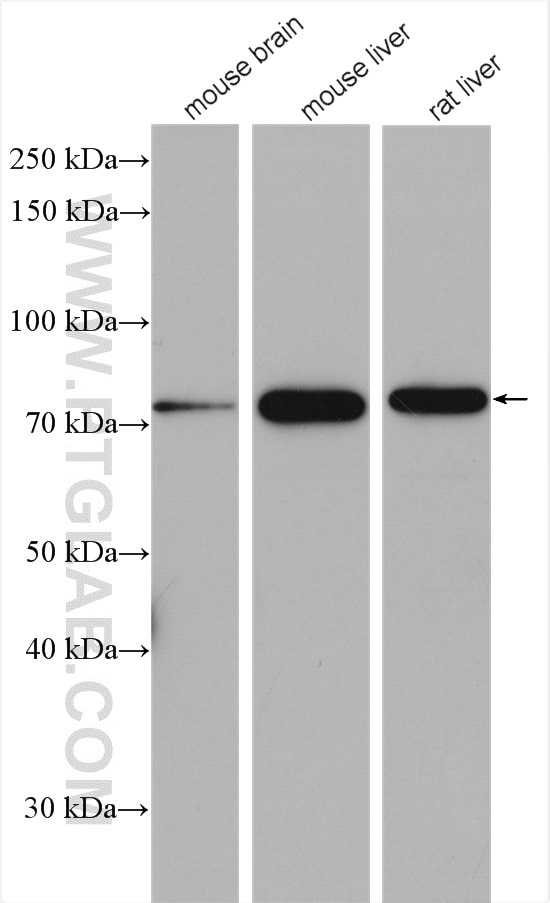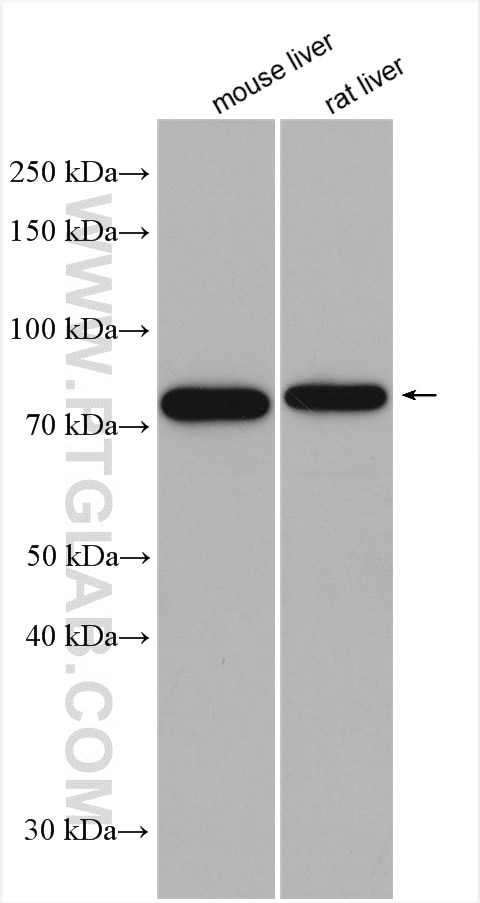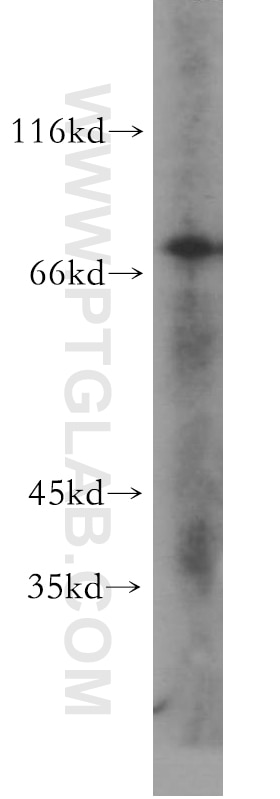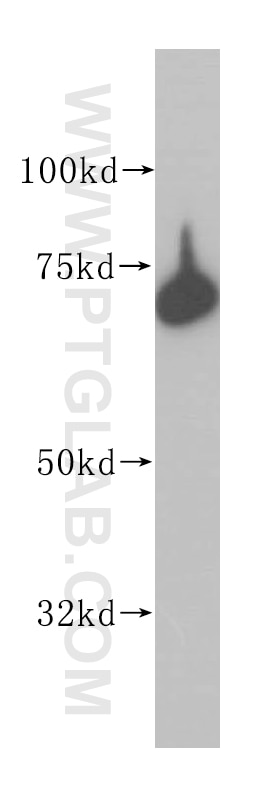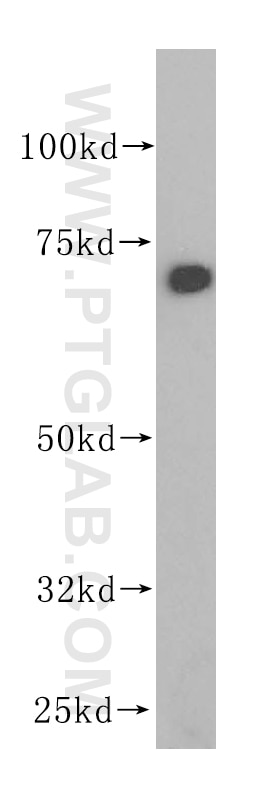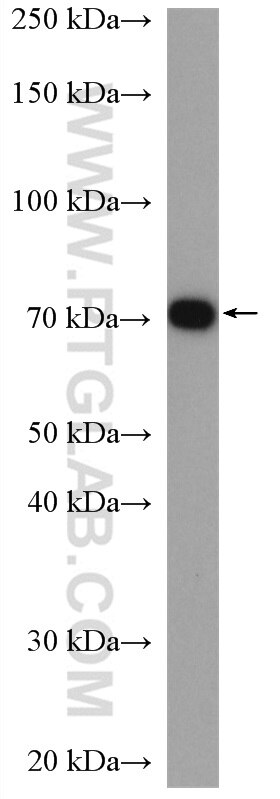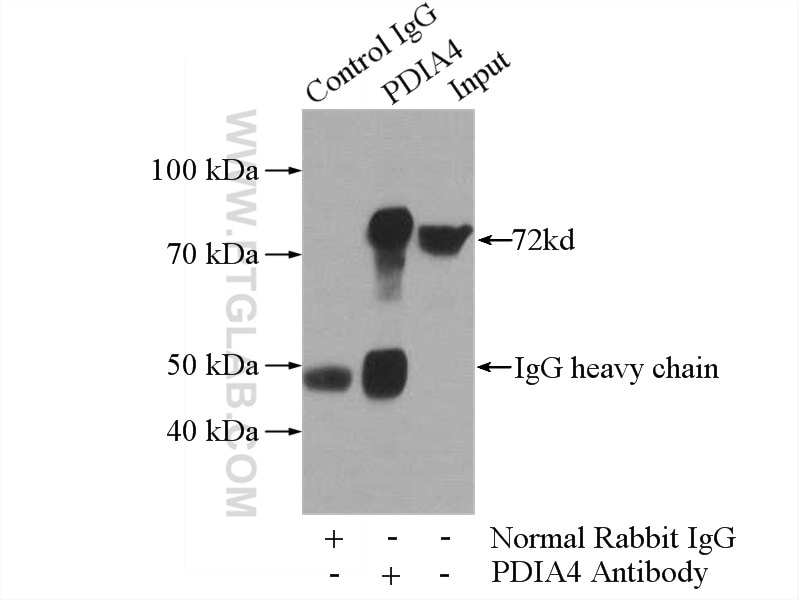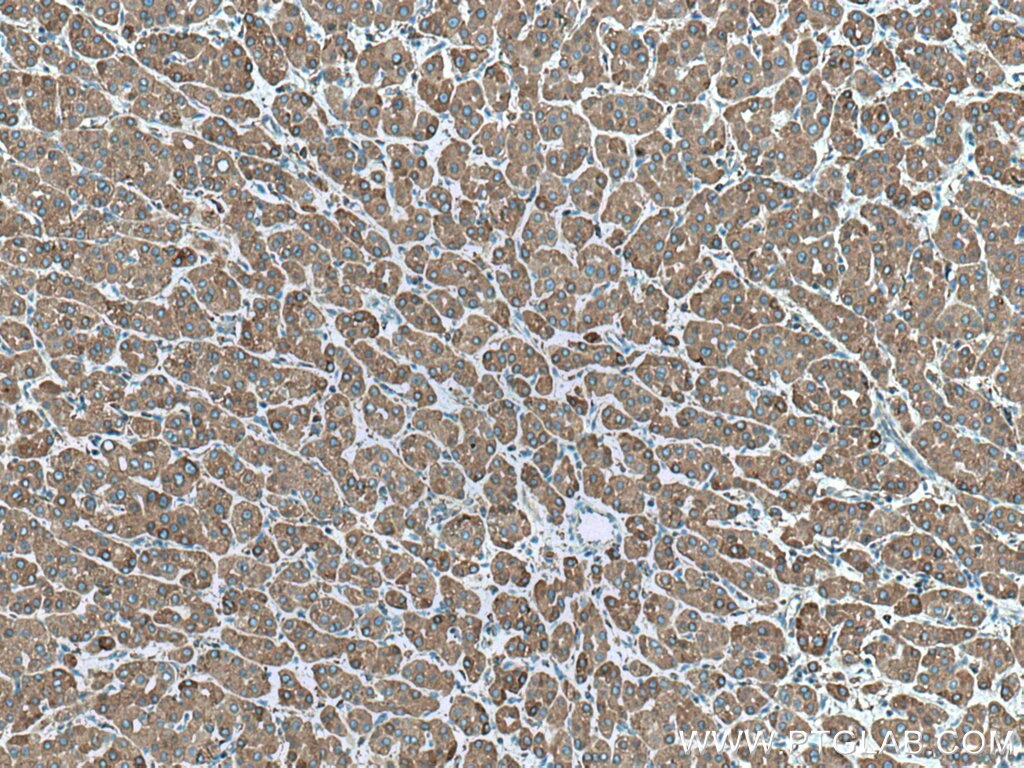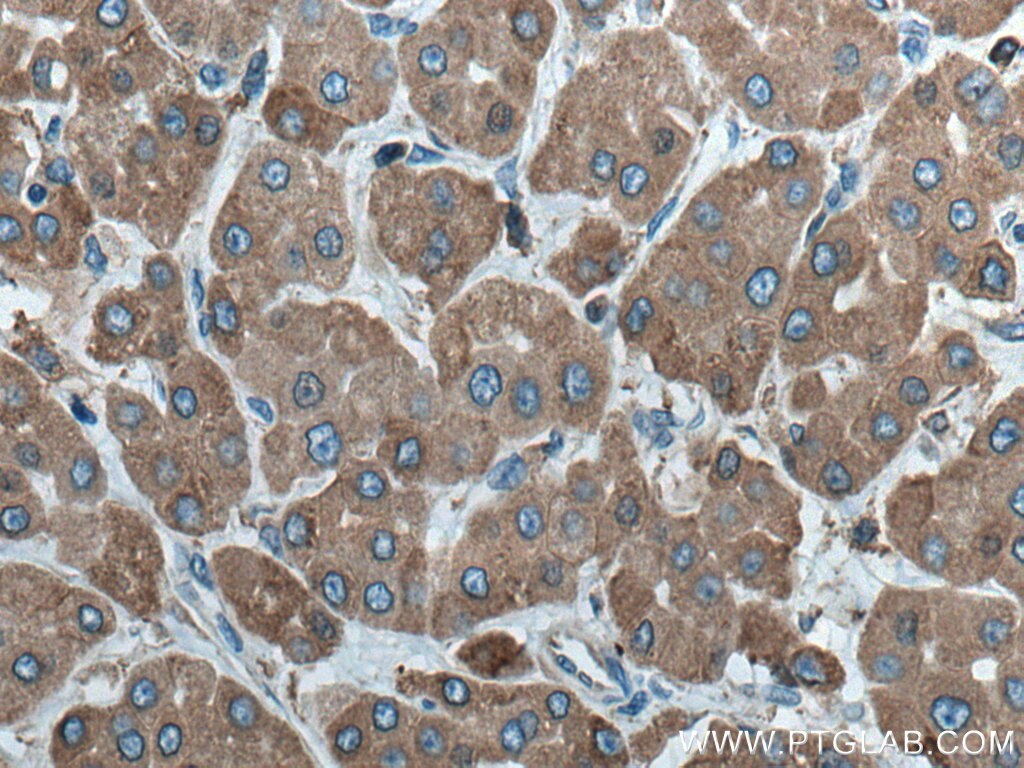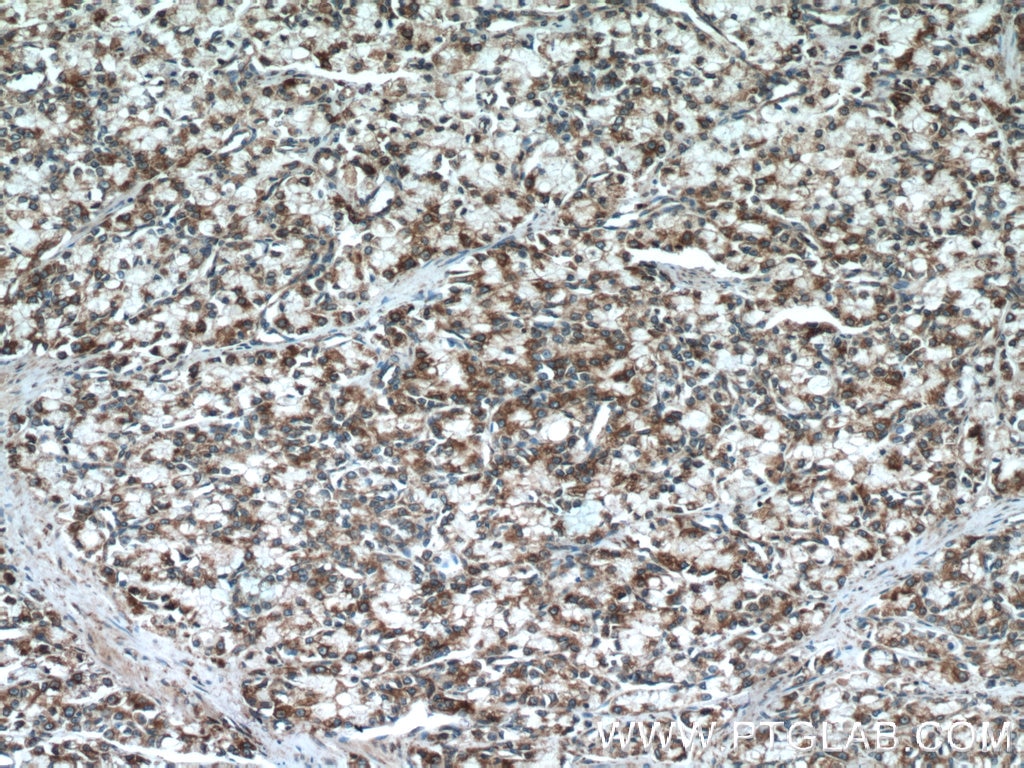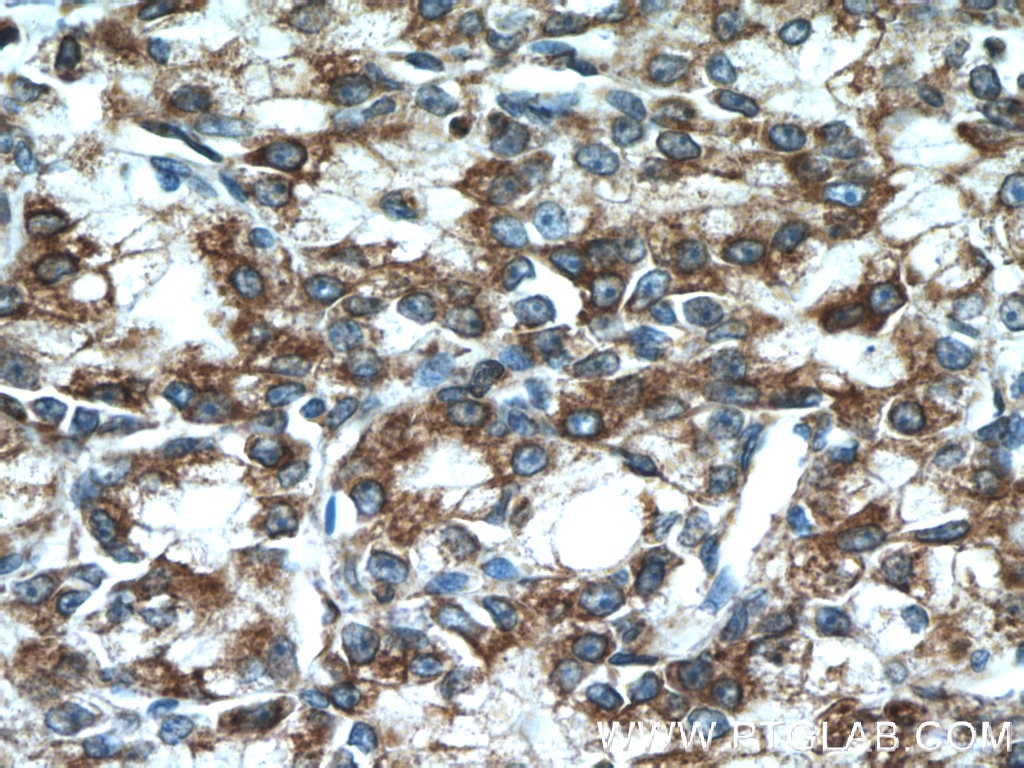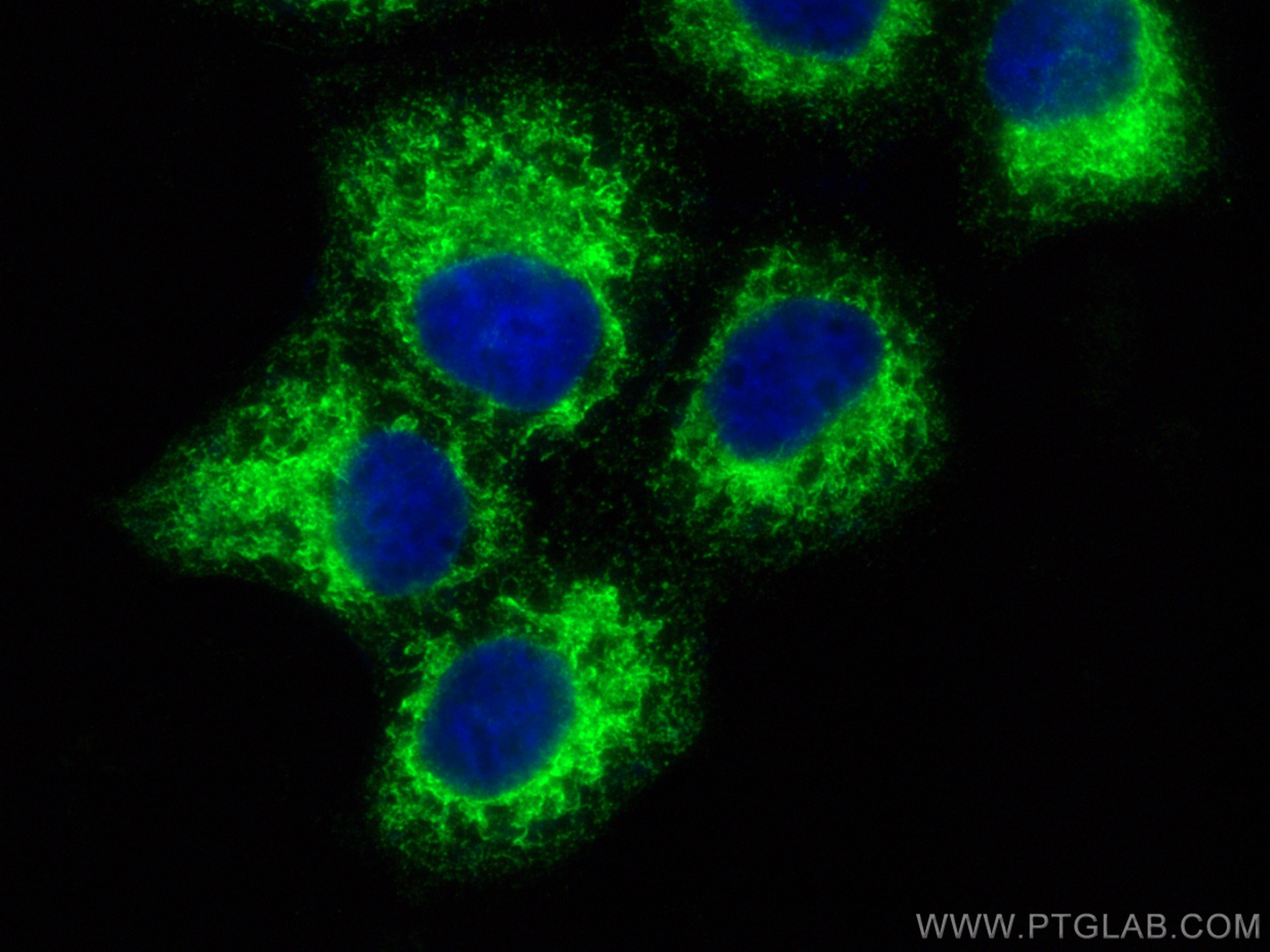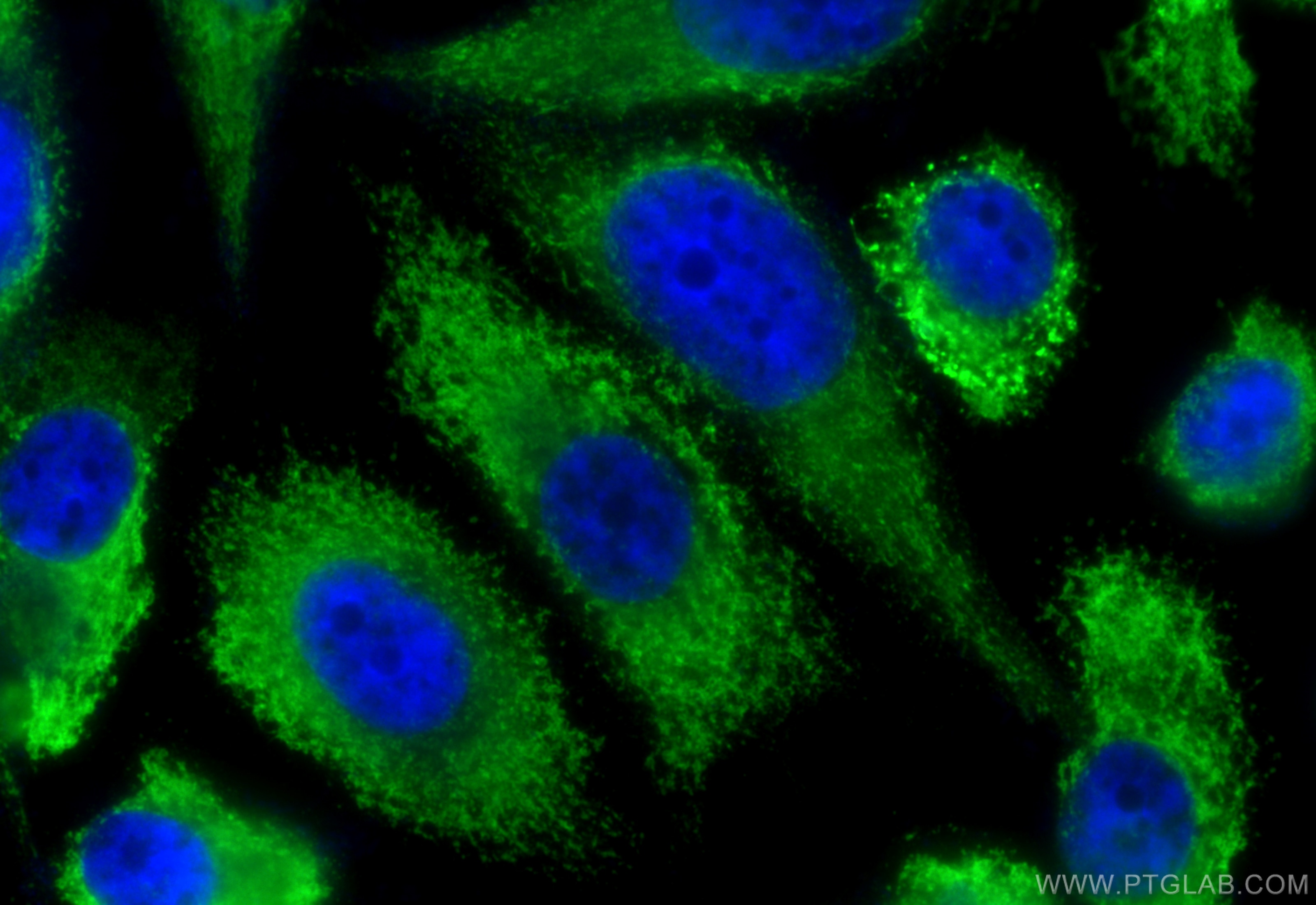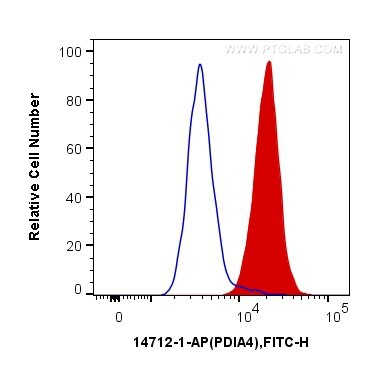Tested Applications
| Positive WB detected in | mouse brain tissue, HeLa cells, HepG2 cells, L02 cells, mouse liver tissue, rat liver tissue |
| Positive IP detected in | HeLa cells |
| Positive IHC detected in | human liver cancer tissue, human prostate cancer tissue Note: suggested antigen retrieval with TE buffer pH 9.0; (*) Alternatively, antigen retrieval may be performed with citrate buffer pH 6.0 |
| Positive IF/ICC detected in | A431 cells, PC-3 cells |
| Positive FC (Intra) detected in | HepG2 cells |
Recommended dilution
| Application | Dilution |
|---|---|
| Western Blot (WB) | WB : 1:2000-1:10000 |
| Immunoprecipitation (IP) | IP : 0.5-4.0 ug for 1.0-3.0 mg of total protein lysate |
| Immunohistochemistry (IHC) | IHC : 1:500-1:2000 |
| Immunofluorescence (IF)/ICC | IF/ICC : 1:200-1:800 |
| Flow Cytometry (FC) (INTRA) | FC (INTRA) : 0.40 ug per 10^6 cells in a 100 µl suspension |
| It is recommended that this reagent should be titrated in each testing system to obtain optimal results. | |
| Sample-dependent, Check data in validation data gallery. | |
Published Applications
| KD/KO | See 4 publications below |
| WB | See 31 publications below |
| IHC | See 3 publications below |
| IF | See 15 publications below |
| IP | See 1 publications below |
| CoIP | See 1 publications below |
Product Information
14712-1-AP targets ERp72 in WB, IHC, IF/ICC, FC (Intra), IP, CoIP, ELISA applications and shows reactivity with human, mouse, rat samples.
| Tested Reactivity | human, mouse, rat |
| Cited Reactivity | human, mouse, pig, monkey |
| Host / Isotype | Rabbit / IgG |
| Class | Polyclonal |
| Type | Antibody |
| Immunogen | ERp72 fusion protein Ag6431 Predict reactive species |
| Full Name | protein disulfide isomerase family A, member 4 |
| Calculated Molecular Weight | 73 kDa |
| Observed Molecular Weight | 72 kDa |
| GenBank Accession Number | BC000425 |
| Gene Symbol | ERp72 |
| Gene ID (NCBI) | 9601 |
| RRID | AB_2160973 |
| Conjugate | Unconjugated |
| Form | Liquid |
| Purification Method | Antigen affinity purification |
| UNIPROT ID | P13667 |
| Storage Buffer | PBS with 0.02% sodium azide and 50% glycerol, pH 7.3. |
| Storage Conditions | Store at -20°C. Stable for one year after shipment. Aliquoting is unnecessary for -20oC storage. 20ul sizes contain 0.1% BSA. |
Background Information
PDIA4(Protein disulfide-isomerase A4) is also named as ERP70, ERP72 and belongs to the protein disulfide isomerase family. It catalyzes the rearrangement of -S-S- bonds in proteins. ERp72 is a soluble protein localized in the ER lumen and contains the COOH-terminal retention signal, KEEL. There are 6 cysteine residues in the amino acid sequences of mouse and human ERp72. All of the cysteine residues occur in the internal thioredoxin motif, CGHC(PMID:15475357). The full length protein has a signal peptide with 20 amino acid.
Protocols
| Product Specific Protocols | |
|---|---|
| WB protocol for ERp72 antibody 14712-1-AP | Download protocol |
| IHC protocol for ERp72 antibody 14712-1-AP | Download protocol |
| IF protocol for ERp72 antibody 14712-1-AP | Download protocol |
| IP protocol for ERp72 antibody 14712-1-AP | Download protocol |
| Standard Protocols | |
|---|---|
| Click here to view our Standard Protocols |
Publications
| Species | Application | Title |
|---|---|---|
J Thromb Haemost SINE-VNTR-Alu retrotransposon insertion as a novel mutational event underlying Glanzmann thrombasthenia | ||
Mol Syst Biol Time-resolved interactome profiling deconvolutes secretory protein quality control dynamics | ||
Elife Small molecule proteostasis regulators that reprogram the ER to reduce extracellular protein aggregation. | ||
Cell Chem Biol Quantitative Interactome Proteomics Reveals a Molecular Basis for ATF6-Dependent Regulation of a Destabilized Amyloidogenic Protein. | ||
Elife PDIA1/P4HB is required for efficient proinsulin maturation and ß cell health in response to diet induced obesity. |
